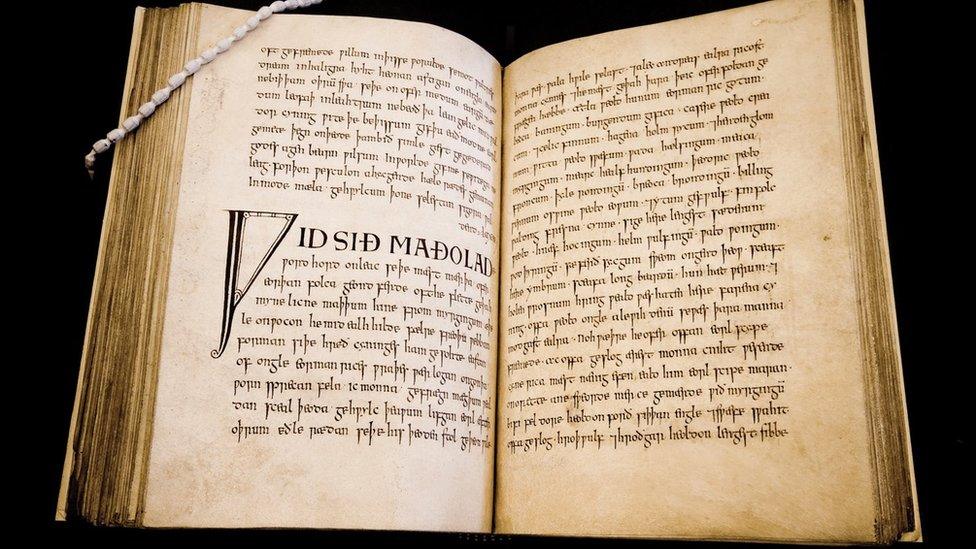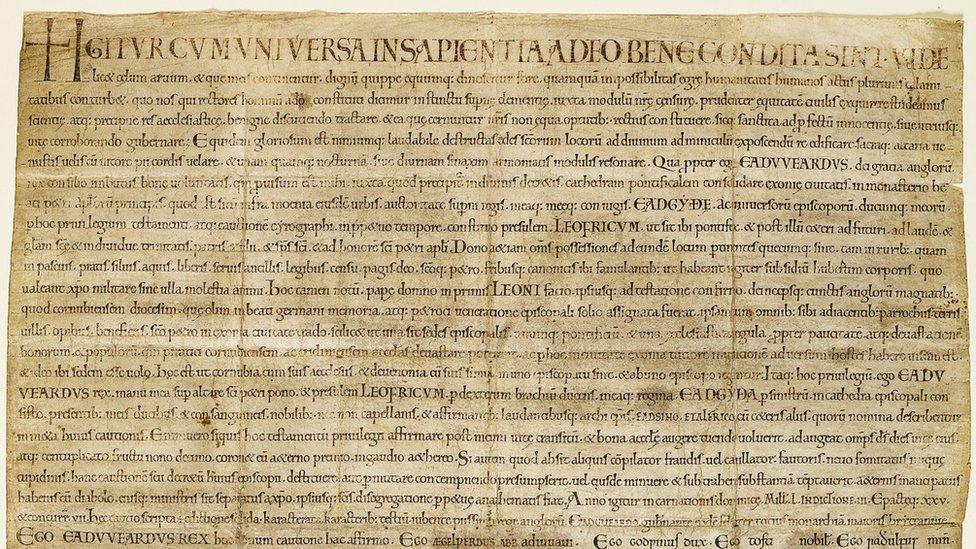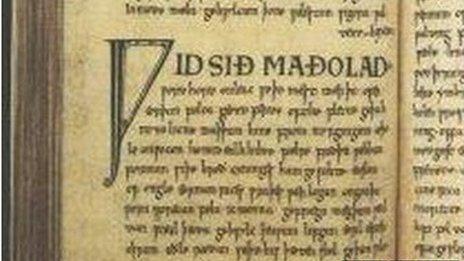Anglo-Saxon artefacts on display at Exeter Cathedral
- Published

The 10th Century Exeter Book contains poems and riddles
A collection of Anglo-Saxon treasures has been put on display in Devon.
Exeter Cathedral said the special exhibition showcases some of the oldest pieces from its library and archives.
Highlights include the 10th Century Exeter Book, thought to be the oldest of only four surviving poetic manuscripts written in the Old English language, it said.
The cathedral's own foundation charter, created in 1050AD, is also featured in the exhibition.
The Exeter Anthology of Old English Verse - the Exeter Book - was given to the cathedral by Bishop Leofric, the city's first bishop, between 1050AD and 1072AD, when it was about 100 years old.

The cathedral's foundation charter is believed to be England's oldest document "to record the creation of a church diocese"
Staff said it was believed to be the oldest surviving collection of English literature in the world, containing poems and 96 riddles.
In 2016, Unesco added the book to its Memory of the World Register of artefacts of global cultural significance.
Also on display is the Exon Domesday of 1086AD, described as the "most comprehensive surviving source for the Great Domesday Book for anywhere in England".
The cathedral also said its foundation charter was "England's earliest surviving document to record the creation of a church diocese and the enthronement of its first bishop".
Cathedral heritage engagement manager Jonathan Scott said the exhibition would give communities in Devon an opportunity "to be able to enjoy their local heritage".
The Anglo-Saxon age in Britain ran from about 410AD to 1066.

Follow BBC News South West on Twitter, external, Facebook, external and Instagram, external. Send your story ideas to spotlight@bbc.co.uk, external.
- Published4 June 2014
